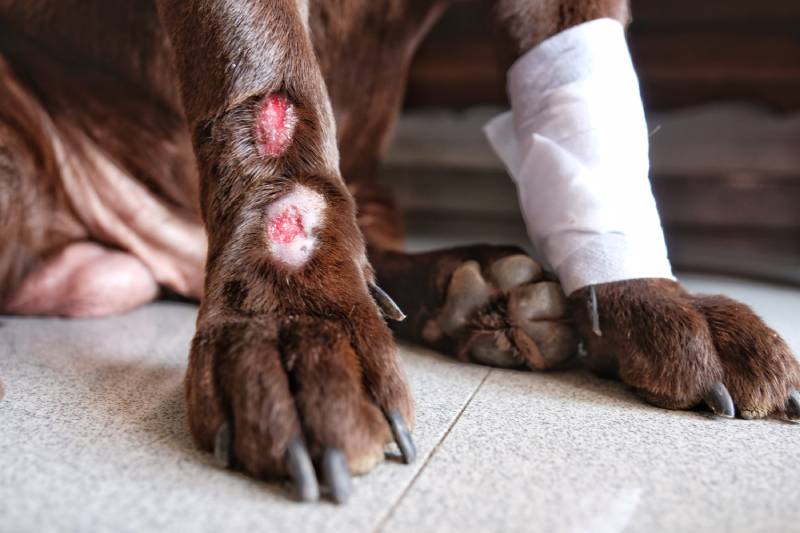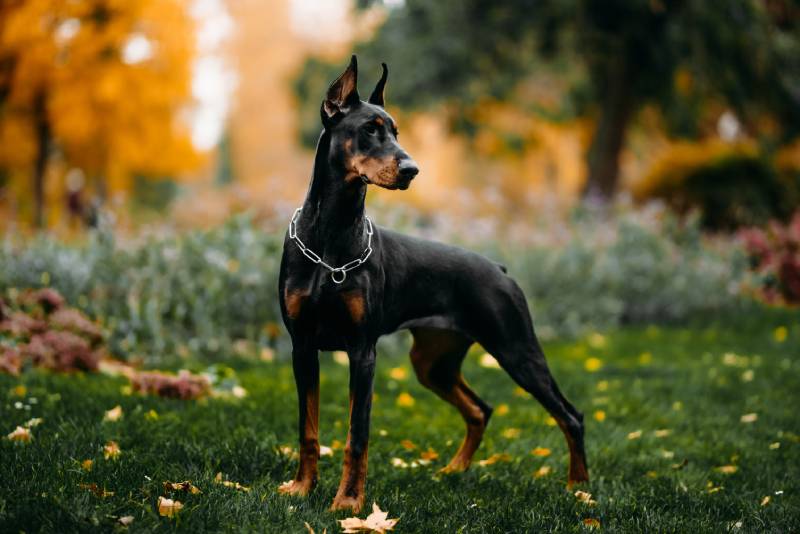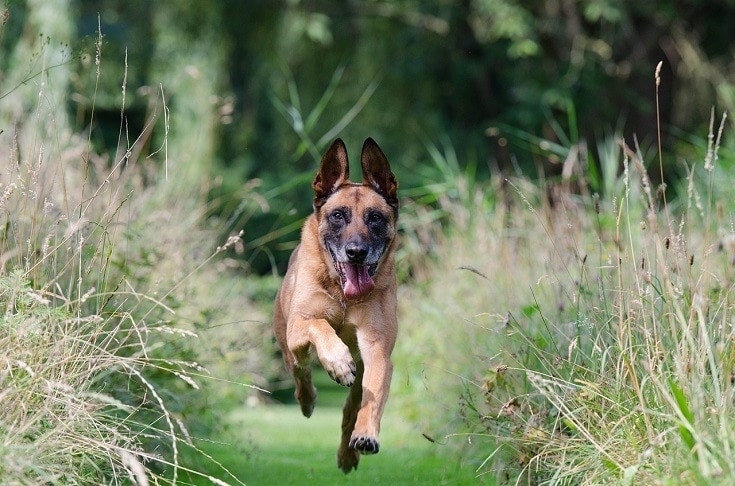Are Dachshunds Hypoallergenic? Vet-Approved Facts & FAQ
Updated on
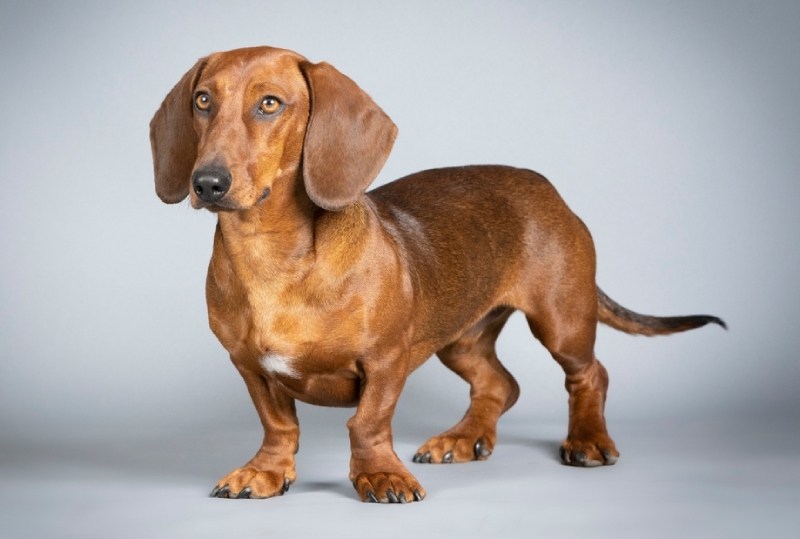
Dachshunds are bold, spunky, and vivacious little things with personalities far bigger than their pint-sized posture would let on. Wiener or sausage dogs, as they’re sometimes affectionately called, are in the top 10 most popular dog breeds, according to the American Kennel Club. Unfortunately, they aren’t suitable for everybody.
Dachshunds are not considered a hypoallergenic dog breed, as no breed is truly hypoallergenic. Low-shedding breeds are sometimes called hypoallergenic, as hair does spread allergens around in the home. Dachshunds are moderate shedders and cannot be called hypoallergenic.
Read on to learn more about pet allergies and what you should be prepared to do if you plan on adopting a Dachshund when you suffer from allergies.
What Are Pet Allergies?
Pets produce multiple allergens that can cause allergic reactions in sensitive folks. Many people mistakenly believe that the pet’s hair or fur causes allergies, but this isn’t the case. People with pet allergies are allergic to the proteins in animal’s skin cells, saliva, and urine. Most allergic reactions are triggered by exposure to the animal’s shed dander (dead skin flakes).
Dust and pollen will inevitably find their way into your pup’s coat, and these can also trigger allergies. In these situations, the allergy is to dust or pollen and not the dog, but having a pet can certainly increase reactions in people with such allergies.
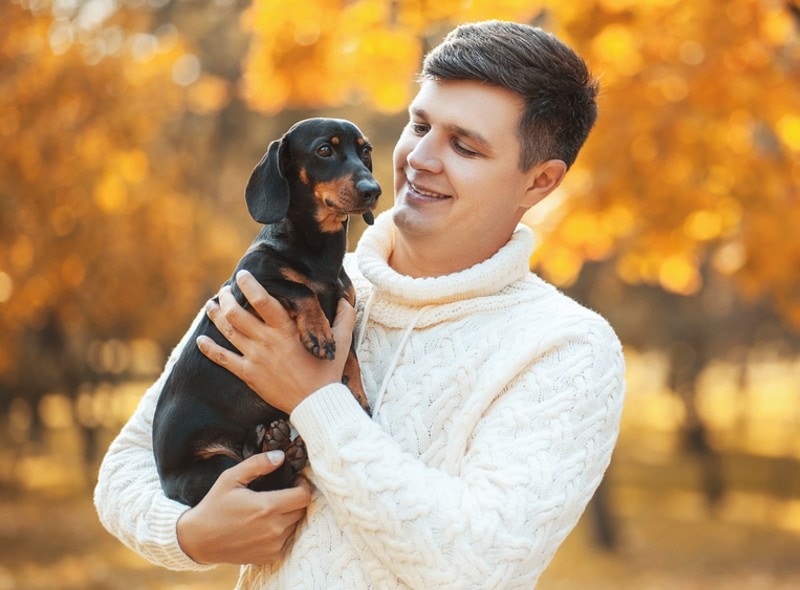
Why Aren’t Dachshunds Hypoallergenic?
Dachshunds have three coat types, but, unfortunately, none of them are low-shedding. Dachshunds can have smooth, long-haired, or wire-haired coats. Each of these fur types will shed differently and require different maintenance, but all of them will shed a fair amount and likely cause allergic reactions.
Smooth-coated Dachshunds have coats consisting of short hairs that sit smooth against their bodies. They are moderate shedders and will shed year-round.
Long-coated Dachshunds have sleek and sometimes wavy hair. Like their smooth-coated counterparts, they shed moderately and will do so all year.
Wire-haired Dachshunds have wiry top coats with smooth undercoats. Their undercoat is similar to the sleek fur of a smooth-coated Dachshund. These double-coated pups are heavy shedders that’ll release more hair during the spring and fall seasons.
So, Does Dog Hair Trigger Allergies?
While dog hair doesn’t necessarily trigger allergic reactions, there is a connection between how much a dog sheds and the spread of allergens around the house. Dander attaches itself to your dog’s fur, and when they inevitably shed, they’ll release this dander into your environment, exposing you to your allergen and triggering a reaction. Low-shedding breeds will still shed skin cells and saliva into the environment.
Most people with pet allergies agree that low-shedding breeds are a better choice. While these dogs will still produce dander and saliva, the hair won’t spread the allergen as easily around your home, making it less likely for them to trigger a reaction.

What Breeds Are Best for People With Allergies?
- Afghan Hounds
- American Hairless Terriers
- Bedlington Terriers
- Bichon Frise
- Chinese Crested
- Irish Water Spaniels
- Maltese
- Miniature Schnauzer
- Poodles
- Portuguese Water Dogs
- Xoloitzcuintli
Should I Adopt a Dachshund if I Have Allergies?
You certainly can adopt a Dachshund if you have pet allergies, but we recommend considering the severity of your allergy before taking the leap. If yours are quite severe, you might consider one of the aforementioned low allergen breeds over a Dachshund for your health and sanity.
However, if your heart is set on adopting a Dachshund, there are several things you can do to increase your chances of living harmoniously alongside your pup.
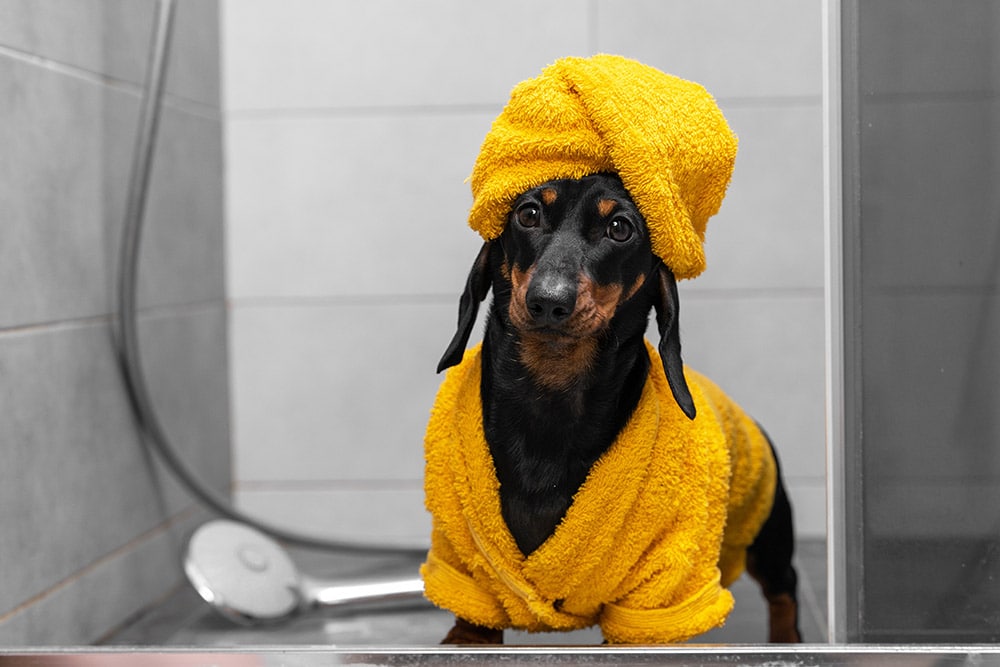
Bathe and brush them frequently. You can bathe your dog once a week using dog shampoo to wash out allergens. The more you brush your pup’s coat, the more dander you’ll remove and the less will be spread throughout your home. Ideally, get someone else in the household to do this job, or have a regular appointment with a groomer to limit your exposure.
Vacuum often. Your vacuum will be your best friend, as it will help remove the allergy-triggering dander from your environment. Don’t skimp out; buy a high-quality vacuum designed specifically to target pet fur and dander. Vacuum your furniture and flooring regularly.
Keep them out of your bedroom. You’re hopefully spending 8+ hours a night in your bedroom catching up on some much-needed sleep. Keep your bedroom a dog-free zone to eliminate how many allergens you’ll breathe in as you sleep.
Consider immunotherapy or other medical treatment. Seek advice from an allergist to see your options for immunotherapy that can help make your life living alongside your Dachshund easier. Speak to your doctor about the symptoms you are experiencing.
Buy an air purifier. HEPA air purifiers are designed to eliminate airborne allergens before they have a chance to settle on surfaces in your home.
Wash your clothes and bedding. Washing with detergent at high temperatures will reduce the amount of allergens. Doing this frequently will stop the allergens from building up in the environment.
Wash your hands. After touching your pet, wash your hands to avoid pet allergens coming into contact with your eyes and skin.
Clean with mops instead of brooms. “Dry” cleaning with brooms or dusters will make allergens airborne. Cleaning with water prevents this from happening while you are cleaning.
Keep pets off carpet and couches. If possible, keep your dog off the couches and carpet, as these will trap allergens and are harder to clean than tile or wooden floors. Make sure your pet has their own comfortable bed where they can lay.
Final Thoughts
Dachshunds are not considered hypoallergenic, as no breed truly is. All three coat types commonly seen in this breed shed moderately to heavily. While dog fur isn’t what most allergy sufferers are allergic to, the hair can be a carrier of allergens and be the reason you’re suffering so much. The more your pup sheds, the worse your allergies will be.
However, if you’ve always dreamed of having a wiener dog, our tips above can help increase your chances of living harmoniously with your pup.
Featured Image Credit: Xyo, Shutterstock




